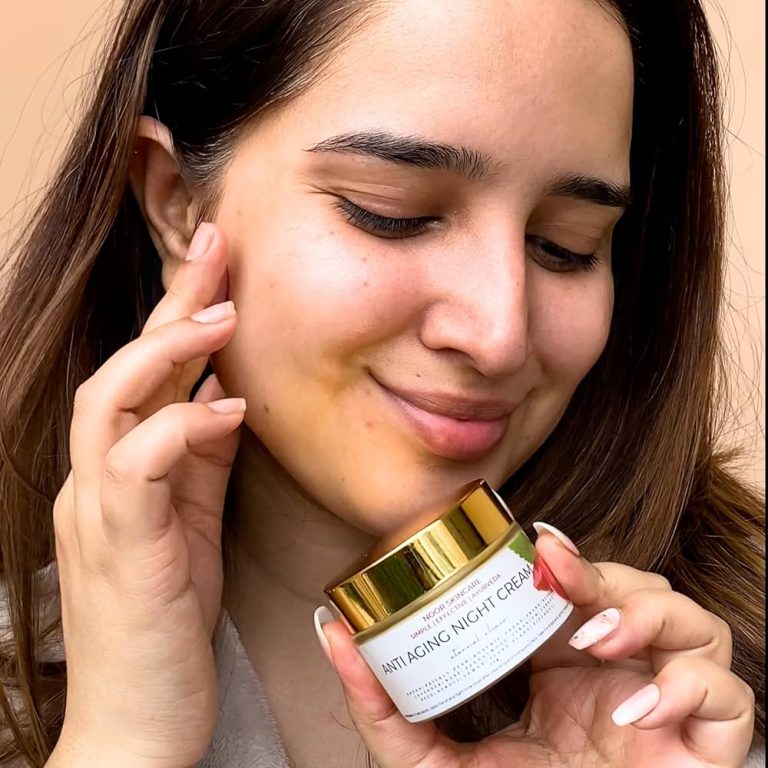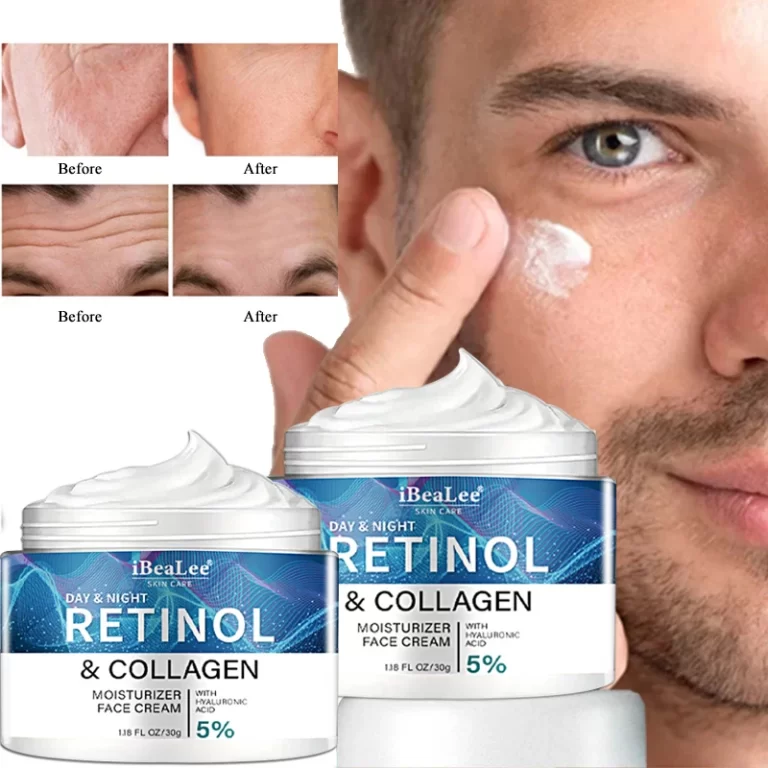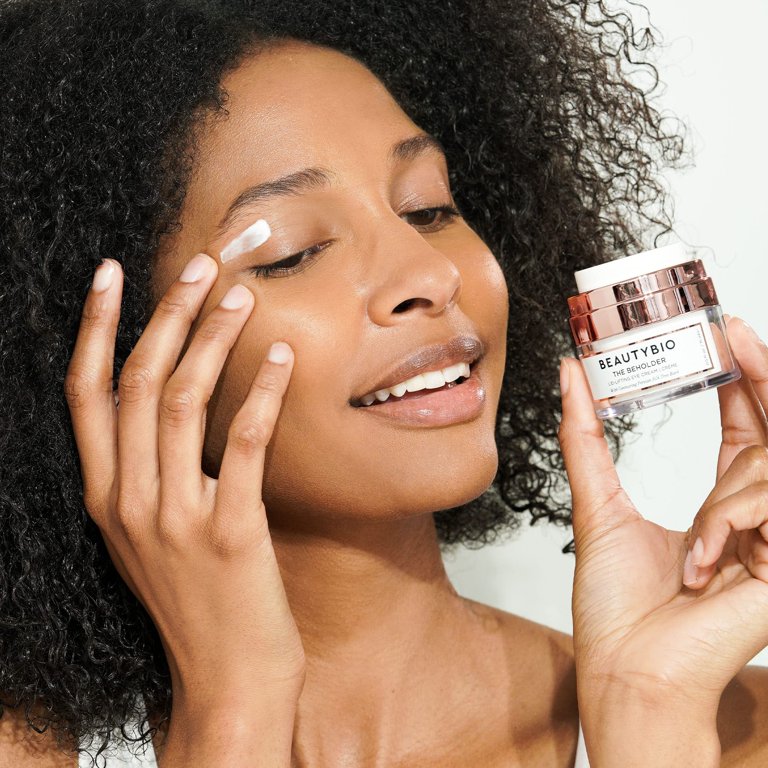
Defying Age: Harnessing Face Cream Serums
Understanding Face Cream Serums
Face cream serums pack a potent punch in the anti-aging regimen. Light and fast-absorbing, they deliver key ingredients deep within the skin’s layers. Compared to traditional creams, these serums are more concentrated. They are vital in fighting signs of aging, such as fine lines and wrinkles. Let’s dig into the ingredients that make these serums a powerhouse for preserving youthful skin.
Types of Serum Ingredients and Their Benefits
Serums are rich in nutrients that target specific skin concerns. Some standout ingredients include:
- Vitamin C: It brightens the complexion and evens out skin tone.
- Vitamin E: This antioxidant protects skin from environmental stressors.
- Niacinamide: It improves skin elasticity and reduces inflammation.
- Alpha hydroxy acids (AHAs): They gently exfoliate to reveal fresher, younger-looking skin.
These ingredients work together to replenish and rejuvenate the skin.
How Serums Differ from Moisturizers
It’s a common misunderstanding that serums can replace moisturizers. They cannot. They have lighter textures but higher concentrations of active ingredients. Moisturizers have a heavier consistency designed to lock in hydration. Serums penetrate deeply to deliver anti-aging benefits, while moisturizers provide a protective layer. To get the best of anti-aging efforts, one should use both. Apply face cream serum first, then follow up with a moisturizer to seal in the serum’s anti-aging properties.
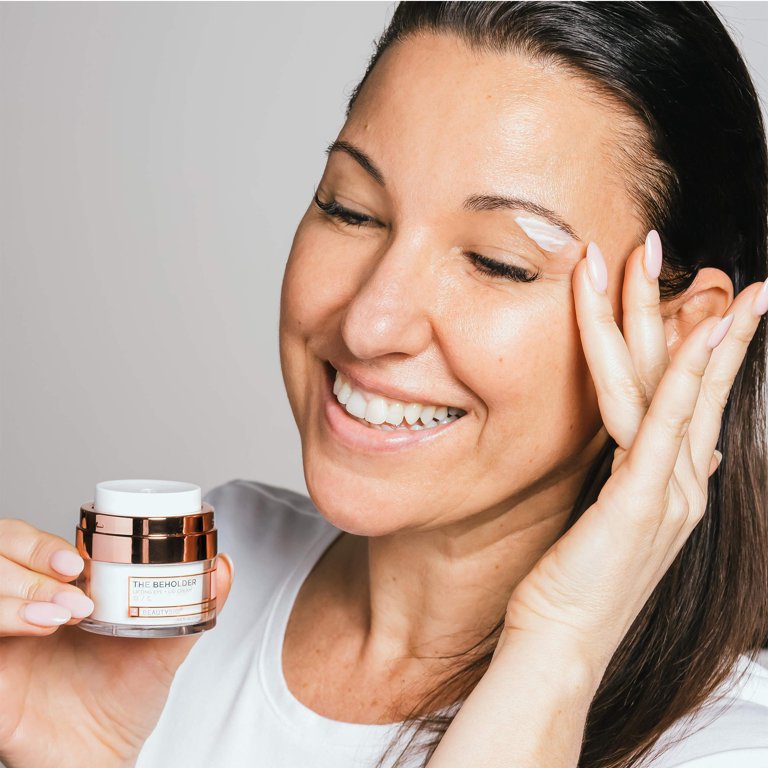
Essential Anti-Aging Ingredients in Face Cream Serums
When seeking an age-defying skin boost, face cream serums are the go-to solution. They’re laden with active ingredients known to combat the telltale signs of aging. Let’s explore some of these essential components and their unique benefits.
Retinoids: The Gold Standard in Anti-Aging
Retinoids, derivatives of vitamin A, reign supreme in anti-aging care. They diminish wrinkles and fine lines and enhance skin texture. By encouraging skin renewal, retinoids help reveal a more radiant complexion.
Peptides: Building Blocks of Youthful Skin
Peptides are tiny protein fragments that support skin firmness and elasticity. They signal our bodies to produce more collagen, keeping skin plump and youthful. Peptides in face cream serum anti aging formulas offer a strong defense against sagging.
Antioxidants: Protecting Skin from Damage
Antioxidants are our skin’s shield against environmental assailants. Ingredients like green tea extract and vitamins C and E fend off free radicals. This protection wards off premature aging and maintains skin health.
Hyaluronic Acid: The Hydration Powerhouse
Hyaluronic Acid is a moisture-binding ingredient that hydrates and plumps the skin. It’s a magnet for moisture, keeping skin dewy and easing the look of lines. This hydration boost is key for a supple, youthful appearance.
The Science Behind Anti-Aging Serums
The youthful skin we all admire owes much to its natural proteins and renewal processes. Understanding the science behind anti-aging serums sheds light on how they help maintain our skin’s fresh and vibrant look. These specially formulated products are backed by research and advanced skin science, targeting the underlying factors that contribute to the signs of aging.
Collagen Stimulation and Skin Elasticity
Collagen is the scaffolding of the skin, providing structure and firmness. As we age, our bodies produce less collagen, leading to loss of elasticity and increased wrinkles. Face cream serum anti aging products often contain ingredients like retinoids and peptides, which are scientifically proven to stimulate collagen production. By boosting collagen levels, these serums improve skin elasticity, making it appear firmer and smoother.
The Role of Serums in Cell Turnover and Renewal
Cell turnover is another critical aspect of youthful skin. New cells replace old, damaged ones at a rate that keeps skin looking refreshed. Unfortunately, this turnover rate slows down as we age. Anti-aging serums, with ingredients like alpha hydroxy acids (AHAs), support this natural process. They help remove dead skin cells, paving the way for new cell growth, and thus contribute to a clearer, more youthful complexion.
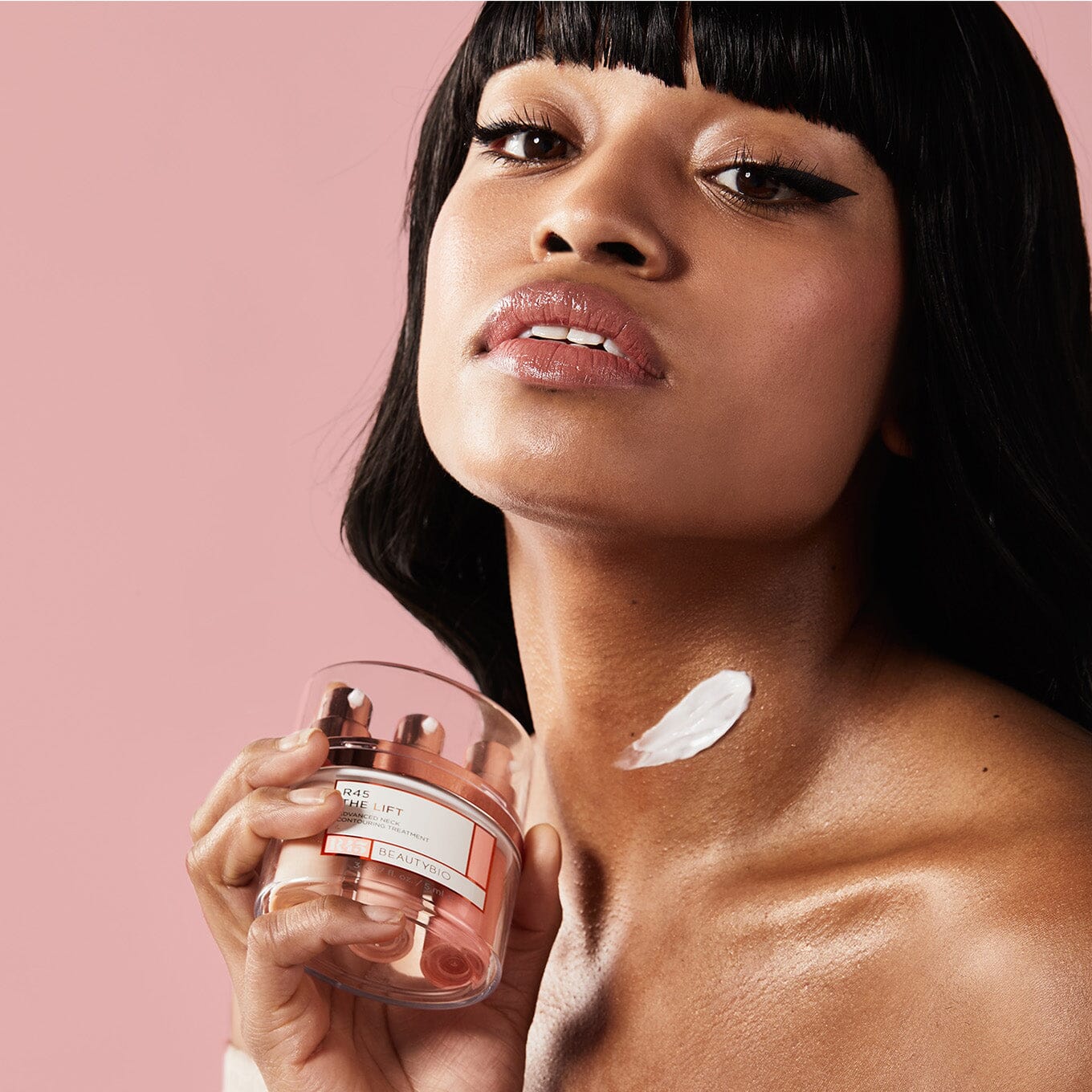
How to Choose the Right Anti-Aging Serum
Choosing the right anti-aging serum can be daunting. With so many options, it’s important to find one that meets your specific skin needs. Here are steps to help you make an informed choice.
Analyzing Skin Type and Concerns
First, know your skin type. Is it dry, oily, combination, sensitive, or normal? Each type benefits from different ingredients. For dry skin, look for serums with hydrating ingredients like hyaluronic acid. Oily skin types may prefer serums that control excess sebum without clogging pores. Sensitive skin requires gentle formulas without harsh chemicals. And if you have normal skin, a balanced serum with a mix of antioxidants and peptides is ideal.
Next, consider your skin concerns. Are you targeting wrinkles, dark spots, or loss of firmness? Choose a face cream serum anti aging formula with retinoids for wrinkles. For dark spots, vitamin C will help lighten and even your skin tone. Look for peptides to improve firmness and elasticity.
The Importance of Packaging in Serum Potency
The effectiveness of your face cream serum also depends on its packaging. Air and light can degrade active ingredients, reducing potency. Opt for serums in opaque, airless bottles or pumps that protect from these elements. Such packaging ensures that the anti-aging properties are preserved until the last drop is used.
Remember, always patch test new serums to avoid adverse reactions, and consult a dermatologist if you’re unsure about your skin type or concerns.
Incorporating Anti-Aging Serums into Your Skincare Routine
To maximize the benefits of face cream serum anti aging products, it’s essential to integrate them properly into your daily skincare routine. Below, we explore the best practices for serum application and how to seamlessly combine them with your other skincare essentials.
Best Practices for Serum Application
Applying anti-aging serums correctly can greatly enhance their effectiveness. Start with clean skin, ensuring all traces of makeup and dirt are gone. Apply a small amount of serum onto your fingertips and gently pat it onto your face and neck. Use upward, circular motions to spread the serum evenly. Avoid pulling or stretching the skin. Wait a minute or two for the serum to absorb fully before applying moisturizer. This allows the active ingredients to penetrate your skin without interference.
Complementing Serums with Other Skincare Products
After the serum sinks in, follow up with a moisturizer to seal in the benefits. For daytime, choose a product with SPF to protect your skin from the sun’s aging effects. At night, a richer moisturizer can nourish and repair skin as you sleep. Remember to be consistent in using these products alongside your anti-aging serum. Together, they work as a team to maintain skin’s youthfulness and health. Using targeted treatments, like eye creams or spot correctors, can address specific concerns and further enhance your skincare routine.
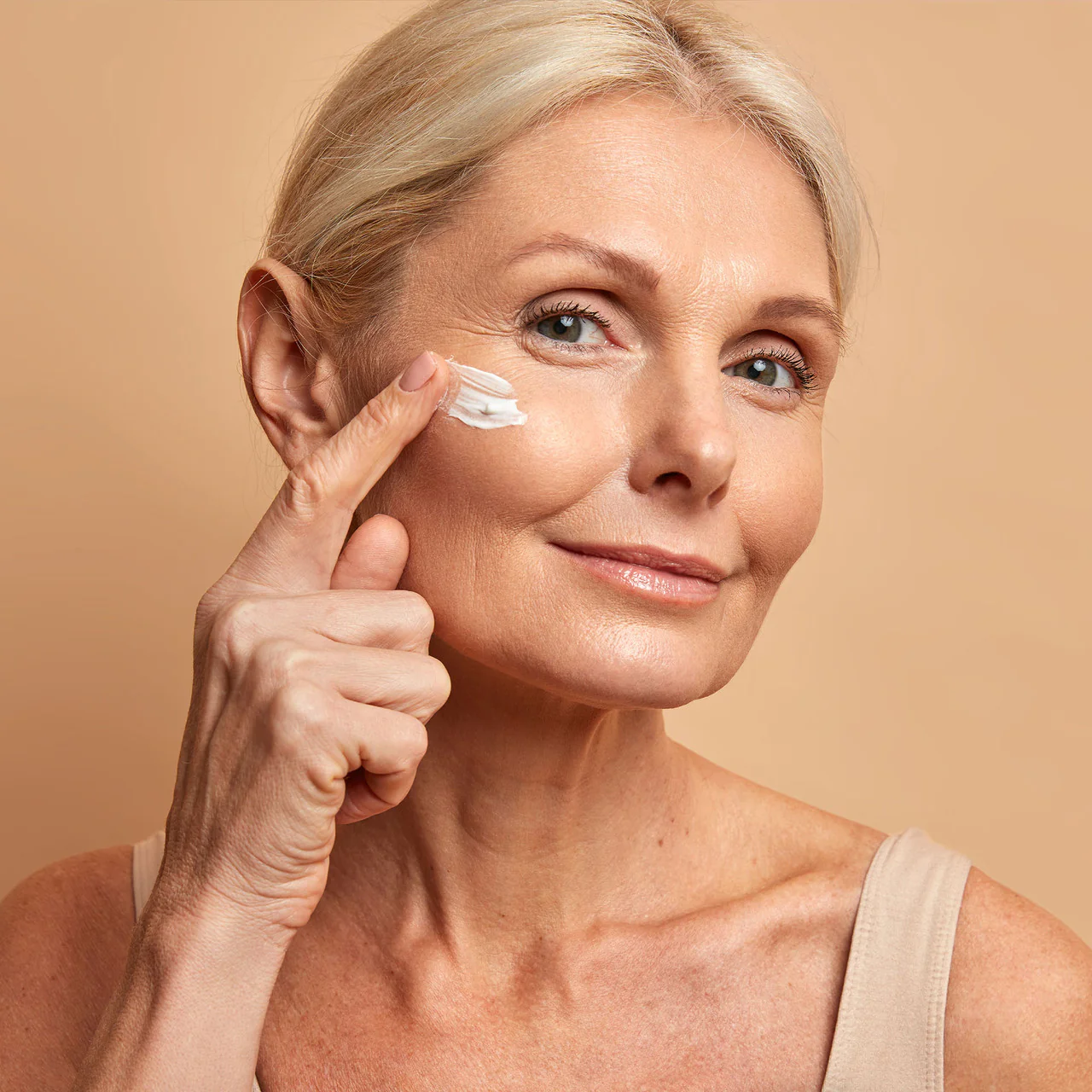
When to Start Using Anti-Aging Face Cream Serums
When to begin using face cream serum anti aging products is a common question. The truth is, it’s never too early to start. Incorporating these serums into your skincare routine can act as both preventative care and reactive treatment.
Preventative Care vs. Reactive Treatment
Preventative care involves using anti-aging serums before signs of aging appear. It helps in maintaining healthy, resilient skin. Starting in your 20s can slow down visible aging signs later. Reactive treatment is for visible wrinkles and age spots. This requires more potent ingredients to repair and improve mature skin.
For the best outcomes, combine preventative care with reactive treatment. This way, you’re not only delaying aging signs but also treating existing ones.
Age-Specific Serum Recommendations
In your 20s, focus on hydration and protection. Look for serums with antioxidants like vitamin C and E. In your 30s, add retinoids to fight early wrinkles and loss of firmness. Hyaluronic acid is great for all ages, thanks to its hydrating power. In your 40s and beyond, consider peptides and stronger retinoids to stimulate collagen production. This helps to counteract increased wrinkle formation and skin sagging.
Tailor your anti-aging serum to your age and skin needs. Begin with lightweight formulas and progressively incorporate more intensive ingredients as needed.
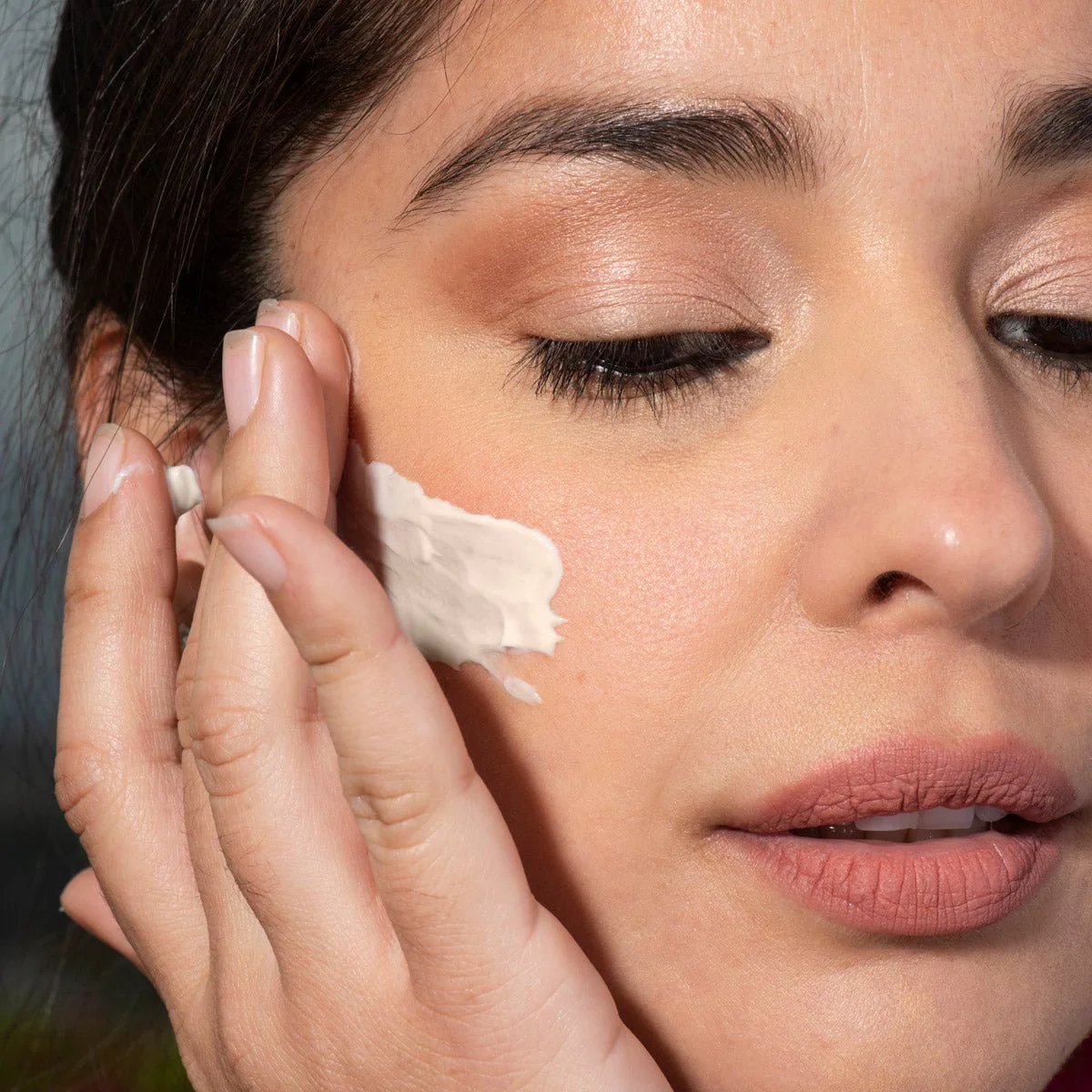
Evaluating the Effectiveness of Anti-Aging Serums
After incorporating face cream serum anti aging products into your skincare routine, it’s important to gauge their effectiveness. Knowing what to look for can keep you informed about your skin’s response and whether you’re on the right track with your product choices.
Signs of Improved Skin Health
Improved skin health is the ultimate goal of using anti-aging serums. Here are key signs that your serum is working:
- Reduced Fine Lines and Wrinkles: You’ll notice a softening of fine lines over time.
- Enhanced Skin Texture: Look for smoother, softer skin as an indicator of effective serum performance.
- Brighter Skin Tone: A more even and radiant skin tone can show that the serum’s ingredients are active.
- Firmer Skin: Over several weeks, a good serum should improve your skin’s firmness.
Consistent use is crucial. Give your serum time to work, typically several weeks, before expecting visible results.
Clinical Studies and User Testimonials
Clinical studies and user testimonials offer valuable insights into a serum’s effectiveness. Looking at these sources can help you make better choices:
- Clinical Studies: Research-backed data often illustrates a product’s success in improving skin health. Look for studies that highlight measurable changes in skin condition after serum use.
- User Testimonials: Reading experiences from other users can provide real-world evidence of a serum’s benefits. Seek out reviews from people with similar skin types and concerns.
Always keep your own skin’s response in mind. No two individuals will have the exact same outcome, even with clinical proof and positive testimonials.
